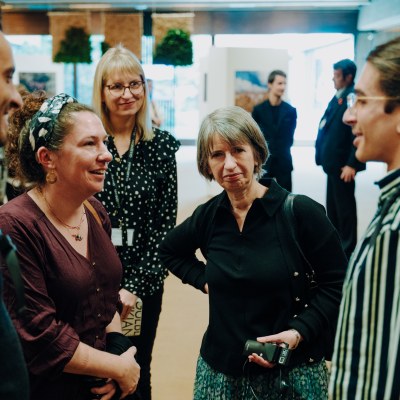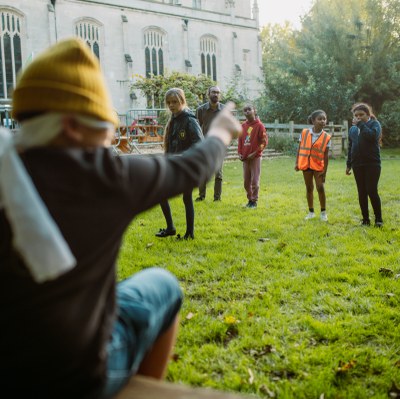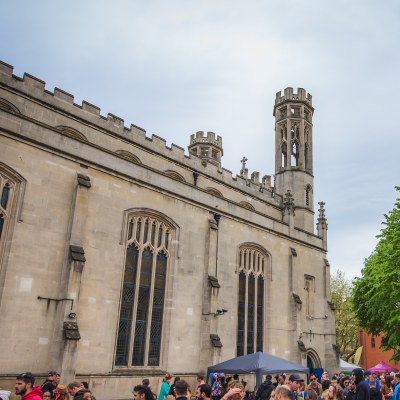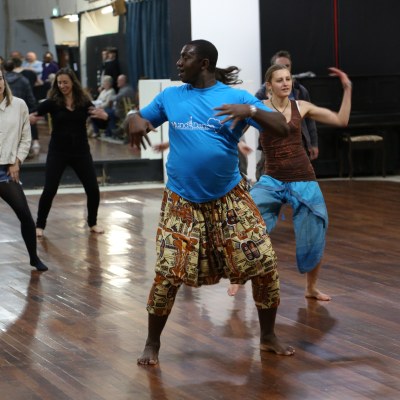Policy launch to protect freedom of expression in the arts
Centre Director, Emma Harvey, and Trustee and local artist, Tom Marshman, set out Trinity’s approach to free expression
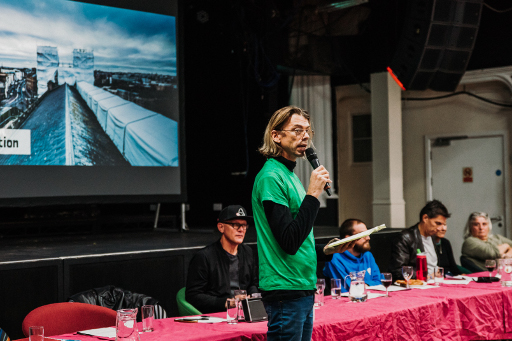
Artist and Trinity Trustee Tom Marsham shares his thoughts on our Free Speech Policy during Trinity's Heart & Soul Celebration, October 2018 (photo @ Khali Ackford)
Centre Director, Emma Harvey, and Trustee and local artist, Tom Marshman, set out Trinity’s approach to free expression
As a community arts space, Trinity is committed to our core values of being a ‘Centre for the People’ and platforming work as part of our IGNiTE performing arts programme that represents and reflects our diverse communities.
This year I was lucky to hear Julia Farrington - Head of Arts at the Index on Censorship (IoC) - talk about about increasing risk-adversity within the arts. Polarisation, amplified by social media, can leave artists feeling scared to take risk and organisations reluctant to host artistic productions for fear of protest and risk to their own reputation and funding.
However, research published this week by the Arts Council England outlines, “long-term resilience of the arts and cultural sector requires adaptability to embrace innovation, the willingness and ability to accept risk and to see failure as a natural part of a vibrant ecosystem.”
If we are to achieve resilience - to not just survive, but thrive - then our collective ability to be bold and take risk is crucial.
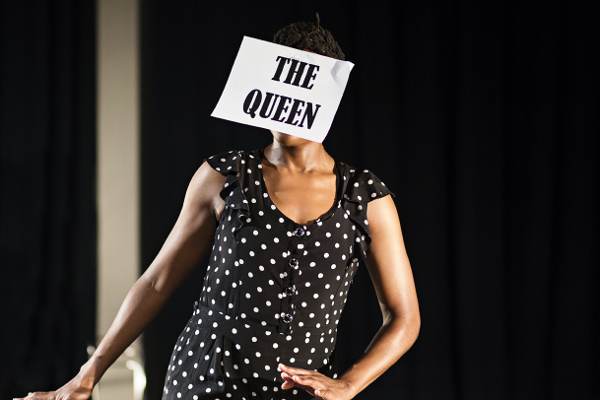
Alesandra Suetin performs Ceci n’est pas Noire as part of Trinity's IGNiTE programme (photo @ Jessica Bartolini)
Sometimes this can be challenging, particularly when working with lots of different people where it is not always possible for everyone to see the world from the same perspective.
Ultimately, human beings will behind every decision and we won’t always get things right. Sometimes we will fail.
Knowing all this, grass-roots venues such as Trinity are vital in protecting freedom of expression; both for the benefits of artists and the resilience of the arts as a whole.
As a charity, we feel it is essential for us to demonstrate our commitment to freedom of expression through adopting a Free Speech Policy; to allow a space for artists and communities to come together, to take risks, to be bold, to maybe have some difficult conversations, but to eventually - hopefully - build commonality and unity.
Emma, Centre Director
“In working to sustain a thriving, vibrant and at times challenging cultural sector, there will be tricky decisions to make and the need to handle difference of opinion. In an increasingly complex world, the more that can be done to approach contention with courage and a zest for debate, the healthier our cultural and civic life.”
Regis Cochefert, Director of Paul Hamlyn Foundation
I am an Artist and a board member working predominantly in Bristol but also further afield, working with all types of organisations - from Watershed (where I am based at Pervasive media studio) to National Trust, Camden People’s Theatre, Zion Arts Centre. Mostly, I create theatre shows or performances.
Working so promiscuously with other venues has allowed me to see how other organisations operate and take inspiration from them - not only as a visiting artist, but also as a regular attendee of cultural events. As a trustee of Trinity, that is where I enjoy expressing my opinion.
I have been making work for almost 20 years, but I have never really worked inside an organisation until now, with Trinity in my capacity as board member and, even now, I am kind of an outsider. Being a board member feels as the benefit of having a reflection of the outsider and not too involved with the day-to-day.
When the Trinity team first talked about introducing a Free Speech Policy, its aspirations really connected with me; as an artist and someone that organises events, as a keen audience member and as a member of the board at Trinity.
I loved the way the policy helps us to be very transparent about what Trinity is and what it can be.
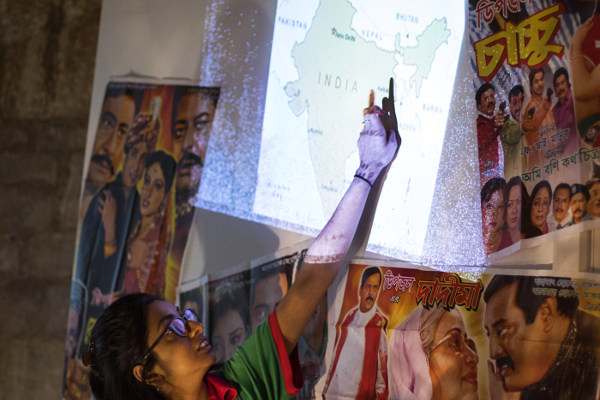
Our Free Speech Policy allows a space for artists and communities to come together and to take risks (photo of Daughters of the Curry Revolution @ Jessica Bartolini )
As an artist wanting to make challenging work, I have often come across uncertain faces when I try and make things happen. Coming into organisations, it can be quite confusing about where they stand. I like to be a bit of an agent provocateur - in my work with organisations this has often been sought out - where the organisation feels like they need to be more ‘risky’ - also, attempted to water-down or push-back when they worry they might upset or offend their regular audience. I also feel like now, with the way things are social media, this can really quickly shut things down.
Trinity’s policy is really exciting because it says, ‘we’re prepared for your questions and we want to help all sorts of different people, who want to come to Trinity and make stuff happen here.’
It is important to represent people who not only inhabit, but help shape this city.
Tom Marshman, Trustee/Artist
Read Trinity’s Free Speech Statement here.
Further reading: What's Next? Guidance on Meeting Ethical & Reputational Challenges, 2016




